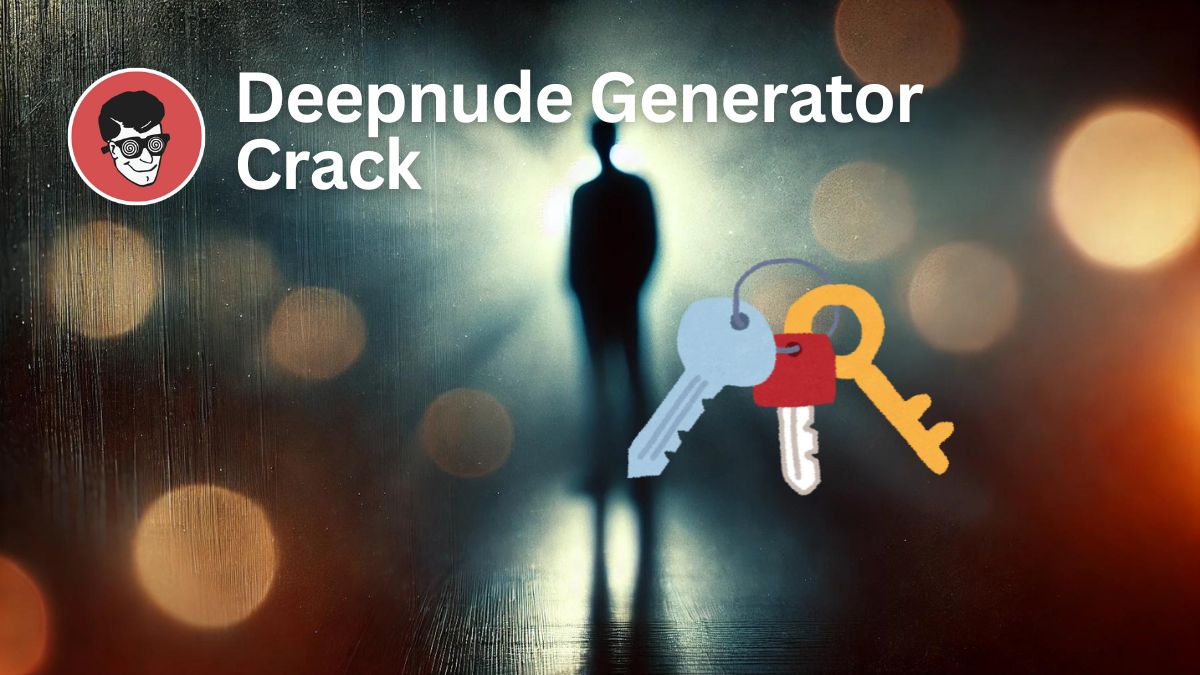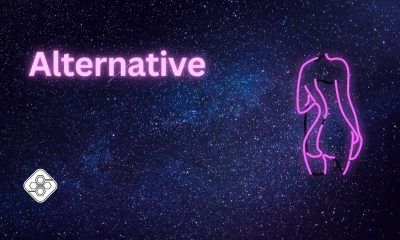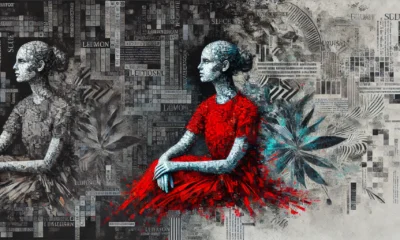Deepnude Generator Crack: No limit Use

The use of artificial intelligence (AI) in various applications has brought both positive and negative impacts. One controversial example is the “Deepnude AI,” a software that gained attention for its ability to generate realistic nude images of women by using AI algorithms. Although the software was initially released as a paid version, it didn’t take long for a cracked or free version to circulate online, raising concerns about privacy, consent, and the objectification of women.
The release of the Cracked version of Deepnude Generator sparked a heated debate about the ethical implications of such technology.
| Platform | Type | Cracked |
|---|---|---|
| Cloud | Website | TOP list |
| Desktop | Python program | GitHub Repo |
| Mobile | APK (Only on Android OS) | None |
| Bot | Telegram or Discord Bot | Best |
While some argue that it is a violation of privacy and a tool for exploitation, others believe that it is an expression of freedom of speech and artistic exploration. This article aims to delve into the controversy surrounding the Deepnude AI Nude Generator, examining its impact on society and the potential consequences of its usage. However, it is essential to approach this topic with sensitivity and respect, acknowledging the potential harm it can cause and the need for responsible use of AI technology.
The Rise of Deepnude AI Nude Generator
The rise of Deepnude AI Nude Generator has sparked both curiosity and concern in the online community. Developed by an anonymous programmer, this controversial software uses artificial intelligence algorithms to create realistic nude images from clothed photos. In this section, we will explore the origins of this technology and its impact on society.
Origins and Development
Deepnude AI Generator first gained attention in 2019 when it was released as a paid software, attracting a significant user base. Its advanced deep learning algorithms allowed it to analyze and manipulate images with impressive accuracy, creating realistic nude representations. The ease of use and the level of detail in the generated images quickly made it a topic of discussion.
Ethical Implications
While some viewed Deepnude Nude Generator as a harmless novelty, others raised concerns about its ethical implications. The software raised questions about consent, privacy, and the potential for misuse. Many worried about the risk of non-consensual use, revenge porn, and harassment, as the software had the potential to create explicit images without the subject’s knowledge or consent.
Public Outcry and Removal
As news of the software’s capabilities spread, there was a significant public outcry. Activists, organizations, and even some tech companies denounced Deepnude AI Nude, citing its potential for harm and violation of privacy rights. Pressure mounted, leading to the removal of the software from the developer’s website and the suspension of its distribution.
Lessons Learned
The rise and fall of Deepnude Generator serve as a reminder of the power and responsibility that comes with developing and using AI technologies. It highlights the need for ethical guidelines, regulations, and responsible practices in the development and deployment of AI systems. The incident also sparked discussions about the broader implications of AI-generated content and the importance of transparency and consent.
The impact of Deepnude will continue to be felt as society grapples with the ethical challenges posed by emerging technologies. It serves as a cautionary tale and a call to action for developers, policymakers, and users to actively address the ethical considerations associated with AI and its potential to shape our digital landscape.
Understanding the Controversy Surrounding Deepnude AI
The Deepnude has been the subject of intense controversy since its emergence. Here, we delve into the key aspects that have sparked widespread debate and concern.
Invasion of Privacy
- The primary concern raised by Deepnude AI is the invasion of privacy. By using artificial intelligence to generate realistic nude images of individuals, the tool has the potential to violate personal boundaries and exploit individuals without their consent.
- Critics argue that the application poses a significant threat to privacy, as it enables the creation of explicit imagery without the subject’s knowledge or permission. This raises ethical questions about consent and the potential for misuse.
Objectification and Harassment
- Another issue surrounding Deepnude AI is the objectification and harassment of individuals, particularly women. The tool can be used to create non-consensual explicit images that can be shared or used for malicious purposes.
- The creation and distribution of such deepfake content can cause significant harm to the reputation and well-being of the affected individuals. It perpetuates a culture of online harassment and undermines the concept of consent.
Amplifying Gender Inequality
- Deepnude AI has been criticized for exacerbating existing gender inequalities. The tool predominantly targets women, reinforcing harmful stereotypes and contributing to the objectification of female bodies.
- By enabling the easy creation and distribution of fake explicit images, it perpetuates a culture where women are disproportionately targeted and commodified. This further perpetuates harmful power dynamics and can have long-lasting consequences.
Legal and Ethical Implications
- The development and distribution of Deepnude AI raise important legal and ethical questions. While it is difficult to regulate technology, especially on the internet, policymakers and organizations have started to address the issue.
- Several countries have implemented or proposed legislation to tackle the non-consensual creation and distribution of explicit deepfake content. However, enforcement remains challenging due to the global and anonymous nature of online platforms.
The controversy surrounding Deepnude AI stems from its potential to violate privacy, perpetuate harassment and gender inequality, and raise complex legal and ethical concerns. The responsible development and use of AI technologies like Deepnude AI require thoughtful consideration of the impact on individuals and society as a whole.
The Legality of Deepnude AI Nude Generator
Deepnude has sparked significant controversy due to its ethical and legal implications. While it may be tempting to try out this software, it’s crucial to understand the potential consequences and the legality of using such a tool.
- Violation of Privacy Laws: Nude Generator operates by manipulating images of individuals without their consent. This raises serious privacy concerns, as it involves creating and sharing explicit images without the subject’s permission. In many jurisdictions, this is considered a violation of privacy laws and can lead to legal repercussions.
- Nonconsensual Distribution of Intimate Content: Sharing explicit images without consent is often referred to as “revenge porn” or “nonconsensual pornography.” Many countries have enacted specific laws to combat this harmful practice, criminalizing the distribution of intimate images without the subject’s permission. Using AI Generator to create and distribute such content could result in severe legal consequences.
- Potential Harassment and Exploitation: Deepfake Generator can be misused to harass, exploit, or blackmail individuals by creating and disseminating explicit images. These actions can inflict emotional distress and harm the reputation and well-being of the affected individuals. Engaging in such behavior is not only morally wrong but can also lead to legal charges.
- Intellectual Property Infringement: AI Generator uses machine learning algorithms to alter and generate images. However, it’s important to note that many images used as input may be copyrighted or protected by intellectual property laws. Modifying and distributing these images without permission could result in allegations of copyright infringement.
- Violation of Terms of Service: Many online platforms and social media websites explicitly prohibit the sharing of explicit, adult, or sexually suggestive content. Using Deepnude AI Nude Generator to create and share such content could lead to account suspension, bans, or other penalties on these platforms.
It’s crucial to consider the legal and ethical implications before using or promoting Deepnude AI. Engaging in activities that infringe upon others’ privacy, well-being, or intellectual property rights can have severe consequences. Always prioritize consent, respect, and responsible use of technology to ensure a safe and legal online environment.
| Legal Concerns |
|---|
| – Violation of privacy laws |
| – Nonconsensual distribution of intimate content |
| – Potential harassment and exploitation |
| – Intellectual property infringement |
| – Violation of terms of service |
Exploring the Features of Deepnude AI Nude Generator
Deepnude AI Generator, while controversial, has gained attention for its unique features. Let’s take a closer look at what this software has to offer:
- Realistic AI-powered nude generation: Using advanced artificial intelligence algorithms, Deepnude AI Generator is designed to create realistic nude images from clothed photos. It utilizes deep learning techniques to analyze and modify the input image, generating a result that resembles a nude version of the person in the photo.
- User-friendly interface: Deepnude Generator features a user-friendly interface that allows users to easily upload images and generate nude versions with just a few clicks. The software aims to make the process simple and accessible for users, even those with limited technical knowledge.
- Customization options: The software offers various customization options to enhance the generated nude images. Users can adjust parameters like breast size and shape, body proportions, and skin tone, allowing for further personalization of the results.
- Privacy and security measures: Deepnude emphasizes privacy and security. It claims that all uploaded images are processed locally on the user’s device and are not stored or transmitted to any remote servers. This ensures that the generated images remain private and are not shared without the user’s consent.
- Ethical considerations: While the software may have legitimate uses, it also raises ethical concerns. It has faced criticism for its potential misuse and the creation of non-consensual explicit content. It is important for users to consider the ethical implications and use the software responsibly.
It is essential to note that the creation and distribution of non-consensual explicit content is illegal in many jurisdictions, and using Deepnude Generator in such a manner is highly unethical.
| Feature | Description |
|---|---|
| Realistic AI-powered generation | Utilizes advanced AI algorithms to generate realistic nude images from clothed photos |
| User-friendly interface | Simple and accessible interface for easy image upload and generation |
| Customization options | Adjust parameters like breast size, body proportions, and skin tone for personalized results |
| Privacy and security measures | All image processing is done locally, ensuring privacy and preventing unauthorized data sharing |
| Ethical considerations | Raises ethical concerns regarding potential misuse and creation of non-consensual explicit content |
Deepnude AI Nude Generator offers a unique approach to image generation, but it is crucial to approach its usage with sensitivity and respect for privacy and consent.
Protecting Privacy and Ethical Concerns
The development and proliferation of AI technology, such as the Deepnude AI Nude Generator, raise important questions and concerns regarding privacy and ethics. While the technology may appear intriguing and novel, it is crucial to consider its potential implications and the risks it poses to individuals and society as a whole.
- Violation of Privacy: Deepnude AI Nude Generator allows the creation of explicit images by digitally removing clothing from photos of individuals. This raises serious concerns about privacy violations, as it can be used without consent or the knowledge of the person being targeted. It undermines the right to control one’s own image and exposes individuals to potential harm, exploitation, and harassment.
- Distribution and Misuse: The availability of cracked or free versions of Deepnude AI Generator further exacerbates the ethical concerns. When such technology falls into the wrong hands, it can be used for malicious purposes, such as revenge porn or cyberbullying. The potential for widespread distribution, particularly on the internet, makes it challenging to mitigate the harm caused by these explicit images.
- Impact on Society: The use of Deepnude Generator and similar technologies can contribute to the objectification and commodification of individuals, particularly women. It perpetuates harmful stereotypes and undermines efforts towards gender equality and respect. Furthermore, the normalization of such technology may desensitize society to the importance of consent and respect for others’ boundaries.
- Legal and Regulatory Framework: The rapid advancement of AI technology has outpaced the development of legal and regulatory frameworks to address the potential risks and abuses. It is essential for lawmakers to keep pace with technological advancements and establish robust safeguards to protect individuals’ privacy and dignity.
In conclusion, the Deepnude AI Generator raises serious privacy and ethical concerns. It jeopardizes individuals’ privacy rights, enables the distribution and misuse of explicit images, impacts societal norms, and highlights the need for appropriate legal and regulatory measures.
Alternatives to Deepnude AI Nude Generator
If you’re looking for alternatives to the Deepnude AI Generator, there are a few options available. While it’s important to note that these alternatives may not have the exact same functionality or features, they provide alternative solutions that you may find useful.
1. AI-Enabled Photo Editing Tools
Several AI-enabled photo editing tools offer advanced features for enhancing and modifying images. These tools utilize AI algorithms to apply various effects, including realistic skin retouching, makeup application, and even clothing changes. Some popular options include:
- Adobe Photoshop: A powerful photo editing software with various AI-powered tools and plugins.
- Luminar AI: An all-in-one photo editing software that uses AI to automatically enhance images.
- Fotor: A user-friendly photo editing tool with AI-powered retouching functionalities.
2. Image Anonymizers
If your primary concern is privacy and protecting the identity of individuals in photos, image anonymizers can be a viable alternative. These tools help blur or distort facial features, making it difficult to identify individuals. Some notable image anonymizers include:
- ObscuraCam: A mobile app that allows you to blur faces and other identifying features in photos.
- SmartBlur: An online tool that offers intelligent blurring of specific areas in images.
3. AI-Generated Image Datasets
If you’re looking to train AI models or work with AI-generated images for research or creative purposes, AI-generated image datasets can be a valuable resource. These datasets consist of images generated by AI algorithms and can be used for various applications. Some popular AI-generated image datasets include:
- CelebA: A large-scale dataset containing celebrity images for face recognition research.
- AnimeGAN: A dataset of anime-style images generated by an AI model, suitable for anime-related projects.
Remember, it’s essential to use these alternatives responsibly and respect the privacy and consent of individuals featured in your images. Always ensure that you have the necessary rights and permissions before using or modifying any images.
Disclaimer: The information provided is for informational purposes only and does not endorse or promote any illegal or unethical activities.
Conclusion: Navigating the Complex Landscape of AI and Privacy
The emergence of AI technologies has undoubtedly brought numerous advancements and opportunities to our world. However, it also presents us with complex challenges, particularly in the realm of privacy. In this article, we have explored the controversial topic of the “Deepnude AI Nude Generator” and the implications it raises. Here, we summarize our findings and offer some key takeaways:
- Ethical concerns: The Deepnude AI Generator and similar technologies raise serious ethical concerns. The ability to generate realistic nude images without consent infringes upon individuals’ privacy and can be exploitative. It is crucial to consider the potential harm and the violation of consent that such technologies can facilitate.
- Legal implications: While the Deepnude Generator is no longer available, it has sparked important discussions around the legal framework surrounding AI technologies. Policymakers must adapt and establish regulations that adequately address the potential misuse of AI in compromising privacy. Striking the right balance between innovation and protecting individuals’ privacy is crucial.
- User responsibility: As users of AI technologies, we have a responsibility to be mindful of the potential consequences. It is essential to question the source and the intentions behind applications that claim to harness the power of AI. By being cautious about the tools we use, we can contribute to a safer and more ethical AI landscape.
- Education and awareness: Enhancing public understanding of AI and its implications is vital. By fostering education and awareness, we can empower individuals to make informed decisions about their privacy rights and the responsible use of AI. Through open dialogue, we can collectively shape the future of AI in a way that respects privacy and ethical principles.
In conclusion, the Deepnude serves as a stark reminder of the complex landscape we navigate when it comes to AI and privacy. By addressing the ethical concerns, establishing robust legal frameworks, taking individual responsibility, and promoting education and awareness, we can strive towards a future where AI technologies are developed and utilized ethically and responsibly.
| Key Takeaways |
|---|
| – The Deepnude AI Nude Generator raises ethical concerns regarding privacy and consent. |
| – Policymakers need to establish regulations that strike a balance between innovation and privacy protection. |
| – Users should be cautious about the AI tools they use and question their source and intentions. |
| – Educating the public about AI and its implications is crucial for responsible AI adoption. |








